 |
| Illustration by Toby Morison |
Best books of 2017: the hits and misses of the publishers’ year
The Man Booker winner, the diary of a junior doctor and the secret lives of cows ... Which books made their publishers proud – and which ones made them envious?
Friday 15 December 2017
Alexandra Pringle
Editor-in-chief, Bloomsbury
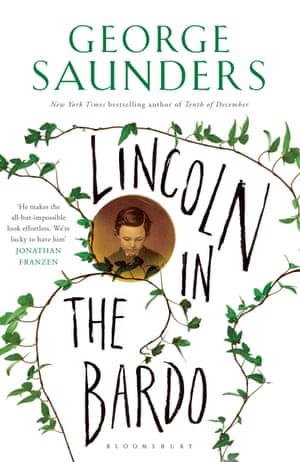
The book that made my year: There are two, both by authors we’ve published for many years with dogged devotion. The first is, of course, George Saunders’s Lincoln in the Bardo, which won the Man Booker prize and took the world by storm. The second is Kamila Shamsie’s Home Fire, which was longlisted for the Man Booker and shortlisted for the Costa prizes. In her heart-stopping reimagining of Sophocles’s Antigone she has produced, in the words of Ali Smith, a contemporary classic.
Our book that deserved to do better: I am more than happy with the reviews (glowing) and sales (excellent) of Tim Pears’s The Horseman, the first novel in his West Country trilogy, but I am disappointed that no prizes have recognised this incandescently beautiful and moving novel of rural life just before the first world war. I love this novel (and its sequel The Wanderers, which we publish in January) with a passion.
I wish I’d published: Sebastian Barry’s Days Without End (Faber) shares much with The Horseman – its humanity, subtlety and power of storytelling. It carried me away. There’s also Sally Rooney’s Conversations With Friends(Faber), with its fresh, clear, crackling voice and elegant dissection of female friendship, bringing to mind the work of Jane Bowles.
Mitzi Angel
Publisher, Faber
The book that made my year: Edward Lear was a busy man – he travelled across the globe; he corresponded with hundreds of distinguished people; he loved to eat and drink and talk; he worked tirelessly on his superb drawings and paintings, which remain underappreciated to this day. He was also a lonely man who never fitted in despite having many friends. Jenny Uglow’s biography, Mr Lear: A Life of Art and Nonsense, is funny, wistful and artfully choreographed – and her fine appreciation of his art has made for a beautiful book. Then there’s The Secret Life of Cows by the farmer Rosamund Young. If I tell you that this book about organic dairy farming features a chapter called “Bovine friendships are seldom casual” followed by “But bulls are a different kettle of fish”, you’ll know why I couldn’t resist.
Our book that deserved to do better: We tend to praise good short stories for being contemplative or elegiac, with the more epiphanies the better. Akhil Sharma’s are not quite that: they’re eventful and suspenseful and steer clear of the obvious pay-offs. They’re unsentimental – even harsh – but the force that holds them in place is enough to make you cry. If Yiyun Li is right to say of Sharma that he is the Chekhov of our time, then A Life of Adventure and Delight should have been a bestseller.
I wish I’d published: Siddhartha Mukherjee’s The Gene: An Intimate History(Vintage), which came out in paperback this year. Mukherjee, a doctor and a researcher, knows everything there is to know about genetics, but he has the sensitivity and intelligence to make what we can’t know about the human heart one of his subjects.
Nicholas Pearson
Publishing director, 4th Estate
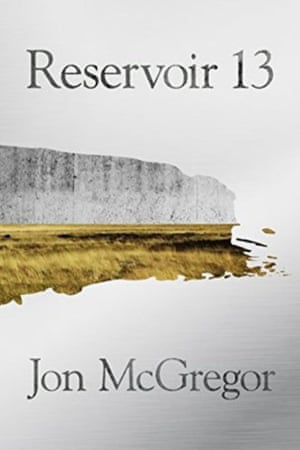
The book that made my year: Nothing and everything happens in Jon McGregor’s magisterial novel Reservoir 13. The slow accretion of events in a northern village over 13 years, placed among the delicately observed details of the seasonal shifts in the surrounding landscape, builds to one of the most moving experiences I have had from any novel in a long time. McGregor seems to have discovered a new form for the novel and a rhythm to his writing quite unlike anything I’ve encountered before. Reviews have been excellent, sales very healthy, longlists and shortlists abundant (but as yet no cigar).
Our book that deserved to do better: “Move over Royal Tenenbaums”, trumpeted the New York Times when The Mighty Franks was published, but despite mainly excellent reviews in the UK, sales of Michael Frank’s memoir of his peculiar upbringing, and in particular the suffocating relationship he had with his imperious aunt, have been slightly disappointing. I’m a bit mystified: few books pressed into the hands of friends, family and writers have been so rapturously received. It’s the slow burn for this one.
I wish I’d published: Conversations with Friends, Sally Rooney’s staggeringly confident debut novel about a self-destructive young woman in Dublin (and winner of the best last sentence award). Also, Maya Jasanoff’s The Dawn Watch: Joseph Conrad in a Global World (William Collins). Read it and weep for everything Britain is turning its back on.
Clare Smith
Fiction publisher, Little, Brown/Abacus; publisher, Blackfriars
The book that made my year: Jane Harper’s brilliant literary crime novel, The Dry, was a sensation around the world, and deservedly so. From the moment you start reading, you know you are in the hands of an incredibly talented writer. I was also extremely proud to publish Celeste Ng’s outstanding Little Fires Everywhere. She writes quite beautifully, about race, class and privilege, with characters you come to care about deeply.
Our book that deserved to do better: Laura Kaye’s debut, English Animals, was the launch of a really interesting, talented writer – she writes so wittily and perceptively. I loved this novel and wished it had reached more readers.
I wish I’d published: I lost out to Bodley Head on Danielle Allen’s Cuz and I still regret it. She tells the story of the life and murder of her cousin, Michael, who was sentenced to a 13-year jail term for carjacking, aged only 15. It’s an unforgettable read about race, social injustice and, most importantly, about Michael himself and his family.
Thomas Penn
Editorial director, Penguin
The book that made my year: It feels strange to talk about John Berger in the past tense. His writing gets to the heart of the human condition, and Confabulations, his last work, is a characteristic bear hug of a book: warm, vital, conspiratorial and full of hope. The cosmologist Max Tegmark is an astonishing thinker. In the face of vast leaps in the development of artificial intelligence, his Life 3.0 is a call for people and governments alike to think hard about what kind of future we want to create.
Our book that deserved to do better: Familiar Stranger, the acclaimed memoir by the pioneering, hugely influential cultural theorist Stuart Hall, is a powerful depiction of the end of empire and of the entanglements of race and class. Hopefully, paperback publication next year will see it find the wider readership it deserves.
I wish I’d published: Miranda Kaufmann’s preconception-confounding Black Tudors: The Untold Story (Oneworld). Deeply researched, vividly told, it places people of African origin at the heart of a pre-colonial, pre-imperial, pre-modern England. Their presence, says Kaufmann, “was common knowledge at the time, and it needs to become common knowledge again”.
Sarah Savitt
Publisher, Virago
The book that made my year: Virago was set up with the belief that storytelling could change the world and so we were very proud to publish Nadia Murad’s The Last Girl: My Story of Captivity and My Fight Against the Islamic State. Murad, a 23-year-old Yazidi activist and now a UN ambassador, is using the story of what happened to her, her family and her community to fight back against violence, slavery and genocide.
Our book that deserved to do better: You Play the Girl by Carina Chocano is a fresh and funny examination of the identities women are allowed to inhabit in popular culture, from the Playboy bunny to a feminist reading of Frozen (essential for every parent).
I wish I’d published: I can’t choose between two memoirs I loved this year – both about life, death and the body, and both brilliantly published too. This Is Going to Hurt (Picador), the diaries of junior doctor-turned-comedy-writer Adam Kay, made me laugh out loud – as well as putting the ups and downs of my own job into perspective. And Maggie O’Farrell’s breathtaking I Am, I Am, I Am (Tinder) – a No 1 bestseller – also struck me as a subtle and intelligent exploration of how and why women’s stories are often ignored or not believed.
Michal Shavit
Publishing director, Jonathan Cape
The book that made my year: It is always very joyful and moving to see a great writer and translator rewarded for their work, and this year it was David Grossman’s moment with A Horse Walks into a Bar, which won the Man Booker International prize. This novel (translated by Jessica Cohen) is a virtuoso performance. It is the monologue of Dovaleh Greenstein, a troubled yet brilliant comic, and as we witness him unravelling on stage, we are filled with awe at Grossman’s ability to make us laugh, cringe, empathise and immerse ourselves in the lives of others, and at the same time question ourselves.
Simon Prosser
Publishing director, Hamish Hamilton & Penguin
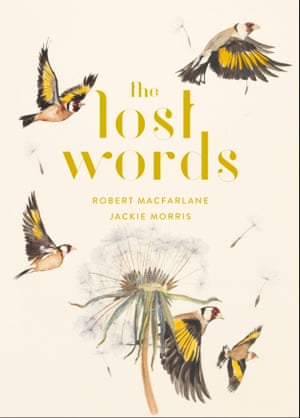
The book that made my year: If I had to choose, it might have to be the most recent, the most unusual and certainly the largest in format: The Lost Wordsby Robert Macfarlane and Jackie Morris. A glorious collaboration between writer and artist, this “spell-book” celebrates the relationship between language and the living world, in beautiful protest at the decline in use, and therefore understanding, of even the most common of nature words. The response from readers of all ages has been a joy to witness, and we have reprinted three times in almost the same number of weeks.
Our book that deserved to do better: Helon Habila’s urgent non-fiction investigation of the Boko Haram mass kidnapping of 276 schoolgirls in Nigeria in 2014, The Chibok Girls, is a reminder that trauma and grief endure when the world’s media move on and hashtags fade. Habila bears eloquent witness to the pain of the Chibok community, and speaks for the voiceless, refusing to meet injustice with silence.
I wish I’d published: Hands down, Sally Rooney’s remarkable debut novel Conversations with Friends: sharp, stylish and wry, it charts the complexities of desire and gender with a clear and fearless eye. I was one of several bidders for the book, but I have to say Faber published it impeccably.
Juliet Mabey Publisher, Oneworld
The book that made my year: Samantha Schweblin’s Fever Dream, a peculiarly skin-prickling, suspenseful and I think utterly brilliant novella, is a little book that packs a big punch. It was shortlisted for the Man Booker International, and has a growing fan club already.
Our book that deserved to do better: One of the books I thought would sell its socks off was Martha Batalha’s The Invisible Life of Euridice Gusmao, translated by Erik Becker. It’s a funny, biting novel set in 1940s Rio de Janeiro about two feisty sisters, and we’ve rarely had so many rave reviews for a translated novel. Sainsbury’s Magazine selected it as a book club recommendation, but sales have been disappointing in the UK. Fingers crossed for the US, where it is about to launch on the crest of a wave of terrific reviews.
 |
| Yaa Gyasi |
I wish I’d published: Yaa Gyaasi’s Homegoing (Penguin), an original, moving and complex novel tracing two strands of a Ghanaian family from the beginning of the slave trade to the present, does what the very best novels do – it opens a window on to a time and a place that seem so true to life you imagine the author witnessed it herself. The writing is outstanding too. I also loved Robert Webb’s searing, moving and very insightful memoir, How Not to Be a Boy (Canongate) – it’s a powerful rallying cry for a broader concept of masculinity.
John Mitchinson
Co-founder and publisher, Unbound
The book that made my year: Looking back on a fairly epic 2017, where we sailed past the 300 successfully funded projects landmark, it would be impossible not to mention the paperback of The Good Immigrant, edited by Nikesh Shukla, which has helped bring the book’s total sales to over 60,000 copies. In a period where pessimism has too often set the tone, this is a cause for celebration. The other book that has made me most proud is the labour of love that is The Paper Time Machine by Wolfgang Wild and Jordan Lloyd. Much more than just a book of colourised photographs, it’s a meditation on time and history.
Our book that deserved to do better: The strange and beautiful Tatterdemalion, written by Sylvia V Lindsteadt and illustrated by Rima Staines, is a collection of folk tales from a wild and broken future. Equally original is Tot Taylor’s epic, 900-page, 15-years-in-the-making novel about a pop musician’s rise and fall, The Story of John Nightly. Yes, it’s long, audacious, and formally ambitious, but doesn’t the world need more of that right now?
I wish I’d published: Caspar Henderson’s A New Map of Wonders (Granta) does everything I want a book to do. It investigates the ordinary mysteries of our lives – light, consciousness, our beating hearts – and simultaneously unpicks and deepens the sense of wonder they provoke.
Bella Lacey
Editorial director, Granta and Portobello
The book that made my year: It’s not often you publish a book that changes your life, but Gary Taubes’s The Case Against Sugar did just that. To the chagrin of my children, sweets and jam have been banned from our household since I first read this devastating polemic. Taubes delves into the maverick nutritional science and big business interests that have ensured sugar’s dominance, arguing that it is the tobacco of the new millennium, with equivalently appalling health effects. We have published 10 of Diana Athill’s books, most recently A Florence Diary, her glorious memento of an Italian journey in the late 1940s. This she will turn 100; an inspiration to us all, she’s still writing and planning new work.
Our book that deserved to do better: One of the Boys by Daniel Magariel is a stunningly good novel about two brothers struggling to survive with an increasingly abusive father. A protege of George Saunders, Magariel is a smart, passionate, young American writer, and this debut packs a huge emotional punch. It has had terrific reviews and quotes and I hope the paperback will find a wide readership.
I wish I’d published: Mary Beard is a fearless writer with the gift of writing the right book at the right moment, and I’ve been emboldened by her brilliant analysis of women’s voice and role in society since antiquity, Women & Power (Profile). I have also been mesmerised by Ali Smith’s daringly ambitious quartet of contemporary life, and I liked Winter (Hamish Hamilton) even more than Autumn. She is an astonishing writer at the height of her powers.
Paul Baggaley
Publisher, Picador
The book that made my year: Two very different books that tackle medical issues were hugely significant for us. David France’s masterly study of Aids activism, How to Survive a Plague, won the Baillie Gifford, the UK’s main non-fiction prize. This book, which came out in paperback this year, highlights the devastating human cost of political decisions – something that was also the motivation for Adam Kay’s This Is Going to Hurt. Kay’s diaries of his years as a junior doctor became especially relevant as he witnessed the charges of greed and selfishness that Jeremy Hunt laid at the profession. It is also the funniest book you’ll read all year.
Our book that deserved to do better: Subtlety is not always rewarded with sales. Howard Cunnell’s Fathers and Sons is a work of art constructed from life. There are plenty of tricksy memoirs that play with form and voice; this memoir eschews the showy, but every sentence matters. Cunnell grew up without a father and sought escape in destructive ways, but books and love allowed him to break the cycle and eventually be the father he never had to his three daughters, the middle of whom was transitioning to be his son. The story is remarkable but the message is universal. Writers loved this book, recognising its purity and style as well as its emotional resonance, and it was a Radio 4 Book of the Week, but it didn’t ignite in sales terms. Here’s hoping the paperback in February will help it reach the wide readership it deserves.
I wish I’d published: Every year my choice seems to be a novel by an Irish writer and this year is no exception, with two at different stages in their careers. Bernard MacLaverty’s Midwinter Break (Jonathan Cape) is a near-perfect novel by one of Ireland’s greats. Here he writes with compassion and intimacy about a long marriage, and all the strains and conflicts that occur as a couple’s life together reaches its own midwinter. My discovery of the year (and I know I’m not alone in this) is a young Irish writer, Sally Rooney. I loved the smart protagonists of Conversations with Friends: this is a cool, clever, precise and often very funny novel about life as it is lived now in contemporary Dublin. I can’t wait to see what she writes next.
Jamie Byng
Publisher, Canongate
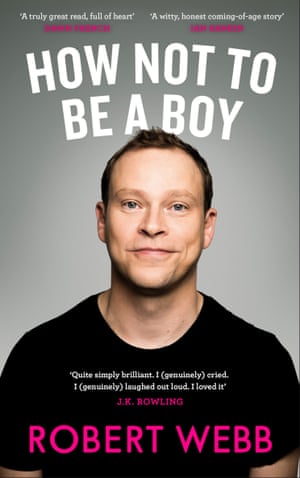
The book that made my year: Robert Webb’s How Not to Be a Boy was a hugely satisfying book to publish, and not just because it was a No 1 bestseller (although that was pleasing too). It is a timely and necessary book that succeeds both as a highly entertaining memoir and as an honest, challenging and brave dissection of masculinity. Webb has changed the way I think and unquestionably for the better.
Our book that deserved to do better: Mark Cousins’s The Story of Looking is as ambitious and illuminating as anything I have read in years. It is the fruit of a lifetime spent with eyes and mind wide open and I cannot believe it has not been universally hailed as a ground-breaking work of genius.
I wish I’d published: Francesca Cavallo and Elena Favilli’s Goodnight Stories for Rebel Girls (Particular) is a book I have loved reading so much with my five-year-old daughter, and I think it will inspire many other girls and boys for years to come. Colson Whitehead’s The Underground Railroad (Fleet) was the novel I read this year that reminded me again why the greatest fiction delves deeper than any other art form. I would have loved to have helped usher this masterpiece into the world, but I am also just grateful it exists.

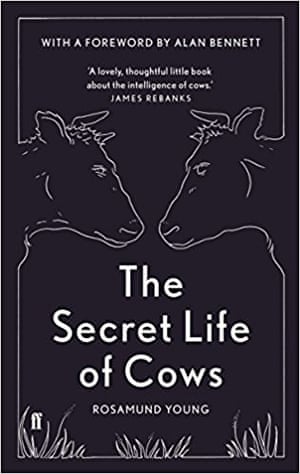
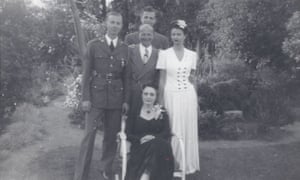
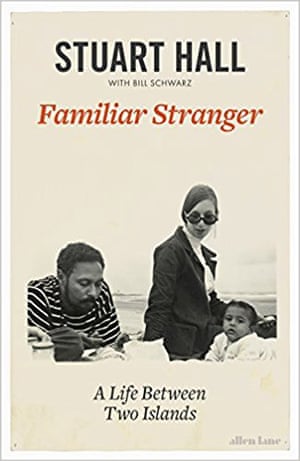
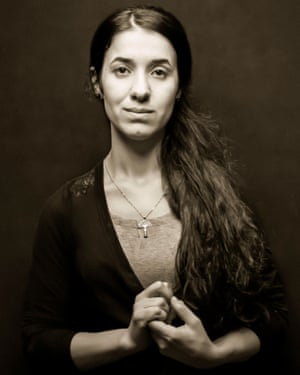
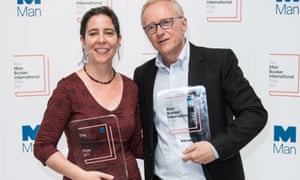
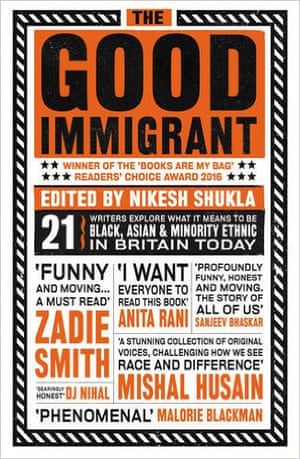
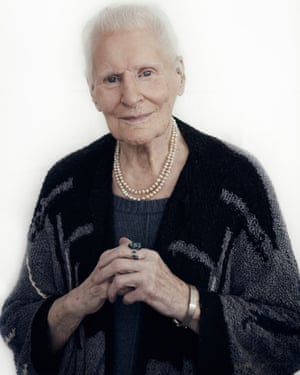
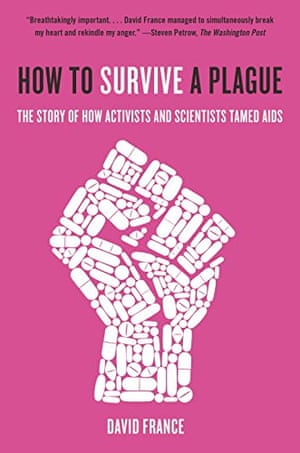
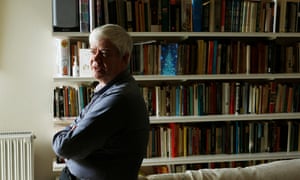

No comments:
Post a Comment